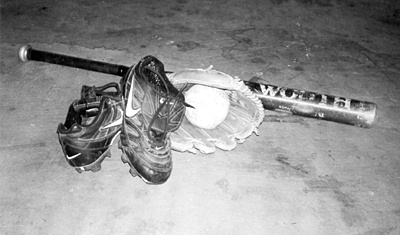All Nonfiction
- Bullying
- Books
- Academic
- Author Interviews
- Celebrity interviews
- College Articles
- College Essays
- Educator of the Year
- Heroes
- Interviews
- Memoir
- Personal Experience
- Sports
- Travel & Culture
All Opinions
- Bullying
- Current Events / Politics
- Discrimination
- Drugs / Alcohol / Smoking
- Entertainment / Celebrities
- Environment
- Love / Relationships
- Movies / Music / TV
- Pop Culture / Trends
- School / College
- Social Issues / Civics
- Spirituality / Religion
- Sports / Hobbies
All Hot Topics
- Bullying
- Community Service
- Environment
- Health
- Letters to the Editor
- Pride & Prejudice
- What Matters
- Back
Summer Guide
- Program Links
- Program Reviews
- Back
College Guide
- College Links
- College Reviews
- College Essays
- College Articles
- Back
Leadership in Sports
I remember in middle school, when I went on a CEESA Middle School Football trip, we had a very hard time in our first game. We lost 5-1 and I thought we were going to lose all of our games. Our captain, Georg then proceeded to give me a pep talk about never giving up. We then went on to win the rest of our games. That's why, one of the most essential parts of a sports team is the captain. The captain is the leader of the team and all the players look up to him. However, it is not an easy job to be the captain of a team. In order to be the captain of a team, you have to show exemplary leadership skills, and this is necessary in order for your teammates to trust you. A captain needs to have certain leadership qualities that will affect the players in his team, and it will affect the teams success overall.
A very important factor of being a leader is communication. You need to be able to communicate with all of your teammates and staff. This way you get to know everyone’s strengths and weaknesses, as well as what type of person they are (Clarke). If a captain can communicate clearly with his teammates, it builds trust between them. The trust between each other will build a special bond on the pitch, as I have experienced many times. If the players trust and respect the captain, then they are more likely to listen to him in in-game situations. A captain should be professional all the time as it sets a good example for the new and young players at a team (Walker). The captain is also the face of the team so if he looks professional then the team is seen in that way. Another leadership skill is guidance showing teammates the best way they can do something, show them how to train harder. A captain needs to be motivation for his team to be the best that they can be. As shown on my anecdote, motivation can change your mindset in a bad situation and can change everything around. A captain should be passionate about the game and should show it through his actions not only his words. Nevertheless, he should teach the teammates to control both negative and positive emotions during a game (McCarthy). He should be able to show the other players that being enraged or disappointed will not help you win a game and may lead to conflicts and serious consequences.
All the leadership skills that I stated above are the key to making a team captain bring out the best of in his team. If players notice a captain communicated to them frequently, they will probably want to interact with him more, and this will build a friendship. A tip for people who want to get along with their captain is to become their friend outside of the pitch, this will make them I've played a couple of important matches, and when the captain and team have not communicated it has not gone well. If young players see their team captain cheating during a drill they are likely to do the same right? “A commitment to leading by example. (Never cheat yourself on a drill)” (Feloni). That is correct, that is why a captain should not cheat on drills, should always be passionate about what he is doing. Saying all this might seem like you have to be inhuman, but small things like the one stated above can really change the opinion that the team has on you and way that teammates act Younger players are more prone to getting emotional on the field, as they are not as mature. If a captain displays good control of emotion and temper, other players will probably try to do the same.
All of these leadership skills affecting the players and staff of the team will most likely affect the progress of the club. A clubs future can be turned around, with good attitude and decent results, they can earn respect from the other teams. Hearing all these good components, good players will want to join the club and eventually it will be full of talented young players and strong veterans to lead them to their right path. This will make the team prosper, and it will make them leaders in the division, league, or championship that they are playing in.
In conclusion, leadership in captains is one of the most crucial parts of a successful sports club. A captains job is to be a good and favorable leader by showing leadership skill like communication and passion, making the teammates trust him and respect him more, which will lead to the clubs prosper and rise.

Similar Articles
JOIN THE DISCUSSION
This article has 0 comments.
